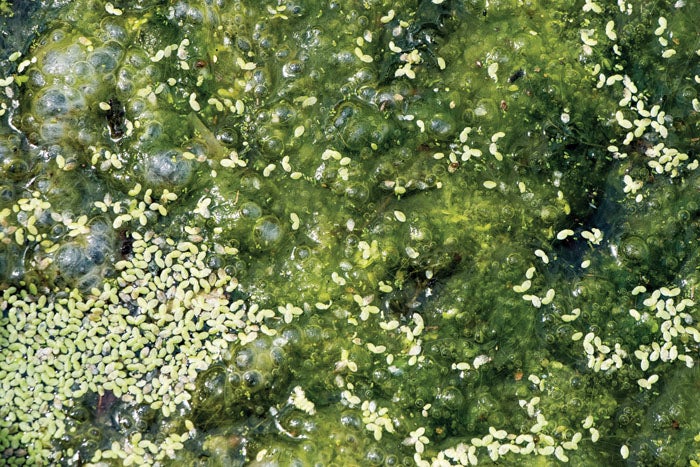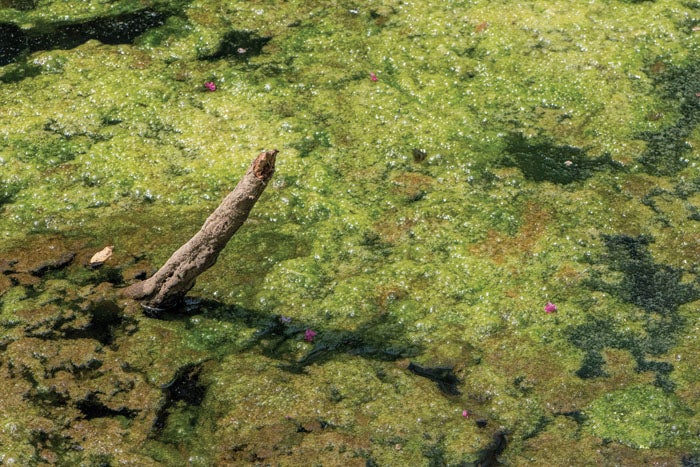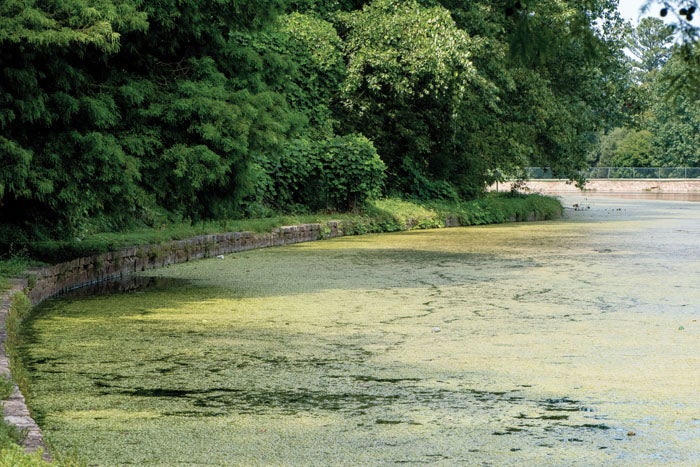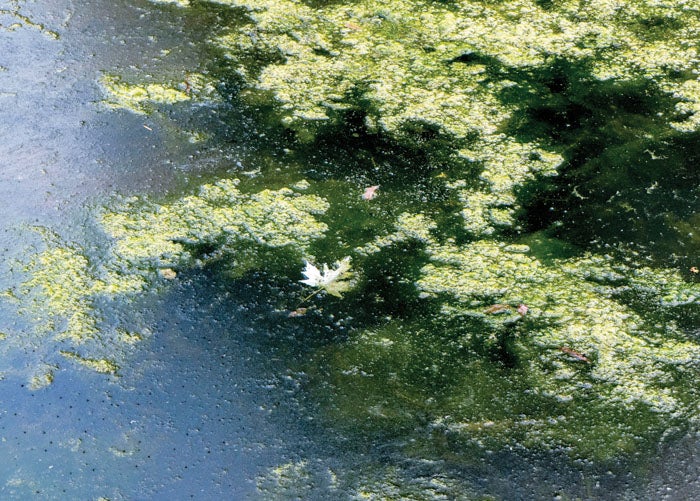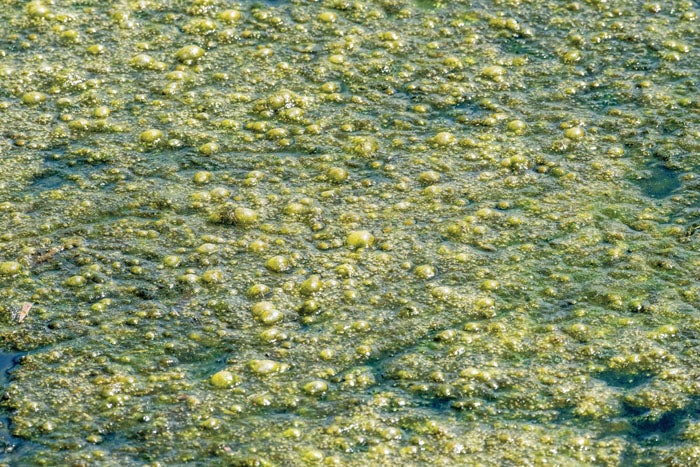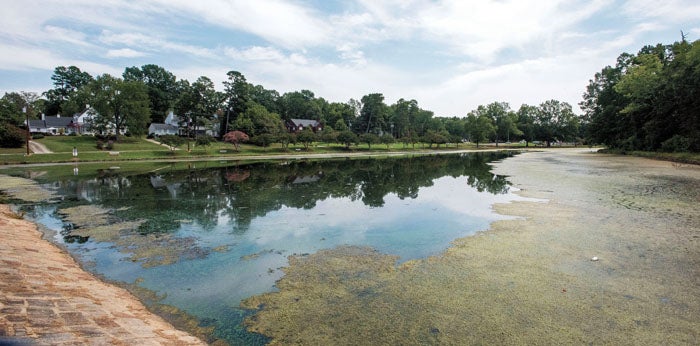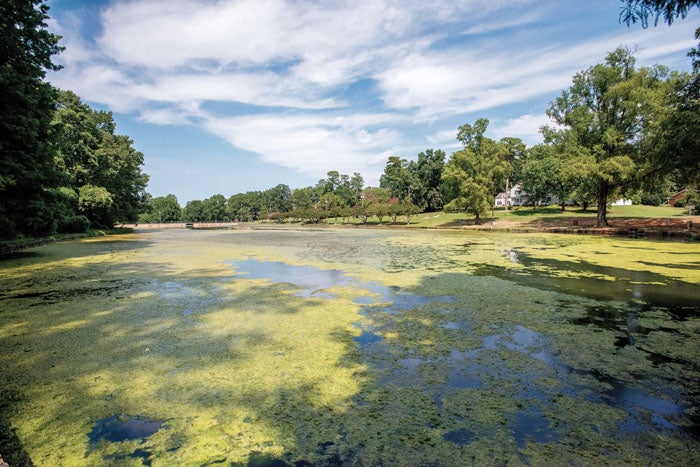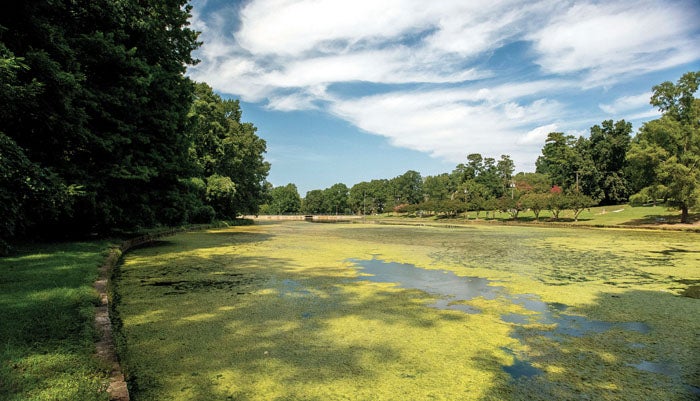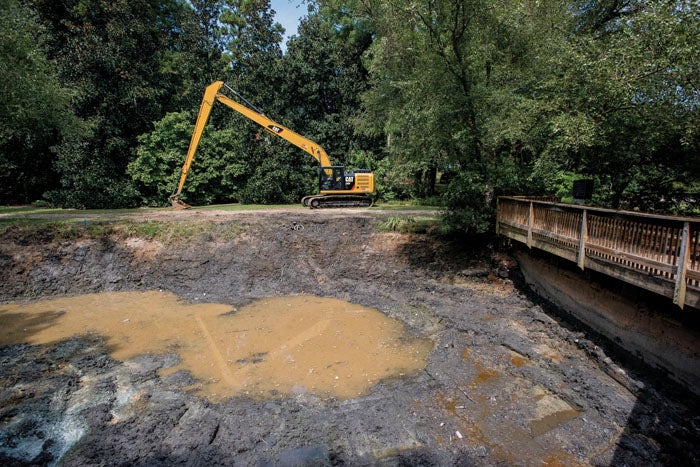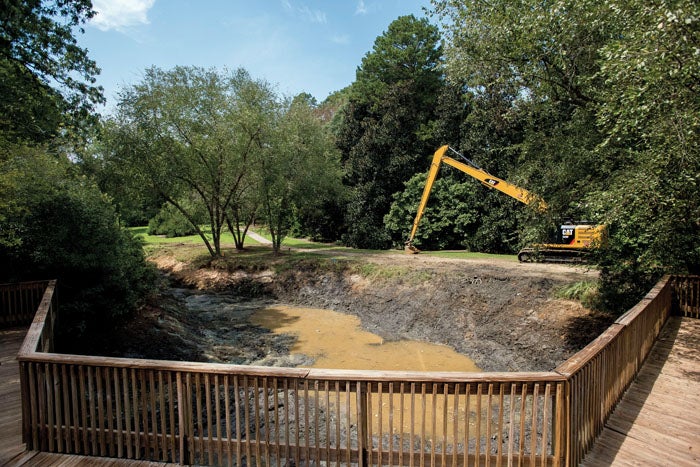City Park lake to be drained, dredged to help remove weed, sediment
Published 12:00 am Thursday, September 5, 2019
SALISBURY — It’s been 23 years since City Park Lake was last dredged.
Now, after an overtaking of the aquatic weed hydrilla and because of its shallow depth after sediment buildup, the lake will be drained and dredged later this year.
At Tuesday’s City Council meeting, members heard a presentation and gave the Parks and Recreation and Public Services departments the go-ahead to make improvements to City Park Lake.
The departments considered hydraulic dredging and mechanical dredging but ultimately went the mechanical route, which will allow crews to drain the lake, remove an additional foot of soil, remove fish, move soil to a specific destination and allow a company to handle the dredging.
With mechanical dredging, the city will have to wait for the lake to refill as it rains, it will smell during the two-month process and the completion may be delayed if there is bad weather.
The oak trees around the lake will be removed and replaced and new grass will be sown to help with erosion.
“We decided on mechanical dredging,” said Stephen Brown, the city’s landscape architect. “We need to drain the lake in order for some necessary repairs and hydraulic dredging would not excavate the additional soil at the bottom of the lake. The extra water depth will help prevent the large algae blooms in the spring.”
Dragonfly Pond Works was the company proposed to handle the mechanical dredging for $265,885, which includes the removal of a foot of soil. The city had budgeted $350,000 for the dredging and lake improvements, which is still the plan.
Parks and Recreation Director Nick Aceves said mechanical dredging will allow the city to do some of the improvements to the lake in house, such as repairing the dam, taking out the island and installing sidewalks.
Councilwoman Karen Alexander questioned the staff’s choice of what to do with the lake’s fish. Brown said Dragonfly Pond Works would remove the fish and move them to a different lake. The fish, though, may transport the hydrilla, which has caused problems for the lake despite attempts to remove it with an aquatic herbicide and grass carp to eat the hydrilla.
“Why would we want to put that burden on any other person, whether it’s in our county or any other county?” Alexander said. “I just can’t imagine why we would do that. It seems irresponsible.”
She offered having a fish fry or a fish giveaway.
Aceves and Brown said they would talk to the contractor about having a fish giveaway. Aceves warned that some fish will die anyway because of the dredging process.
Mayor Pro Tem David Post asked Brown to expand on the impact of the bad smell. Brown said the sludge in the lake is what specifically will smell.
He offered, similar to mulch, the smell will be apparent for a couple of days but people will get used to it. The lake will smell until rain begins to fill the lake.
Post said the council has already received calls from residents of the Country Club area about the appearance of the lake and wanted to be prepared for future calls.
Aceves said this is a necessary evil of the project.
Brown compared the process to typical construction, as construction equipment will be at the lake as well. The dredging will removed 460 tandem loads of debris from the lake.
Hurley Park
Nearby Hurley Park Pond is currently being dredged, too, as the pond was damaged by two hurricanes last year and a 500-year flood. The dredging of the pond began Tuesday and continued Wednesday.
Today, the floor bay will be prepared. The 700 block of Lake Drive has been reopened for traffic, but Danelle Cutting, Hurley Park manager, said to expect more traffic than normal as they finish.
The Hurley pond is on a 10- to 12-year dredging schedule, but it has only five years since the pond was dredged because of its poor condition. Cutting said the Hurley Park foundation was hoping to piggyback on the city’s dredging but could not wait.
At Hurley Park, workers removed 41 tandem truckloads of debris, compared to 43 during the last dredging. The dredging costs the foundation about $10,000, with a $2,500 fountain replacement motor that was malfunctioning.
Cutting said the park is still open and accessible, except for some parts that are barricaded.
Though the dredging process, workers rescued two goldfish and snapping turtles. Some small fish stayed because of a small amount of water that remained. The soil from the bottom of the lake is nutrient-rich and will be dried out to be composted.
The pond will fill naturally and continue to be a murky brown color at a depth of 6 to 8 feet. Workers will not restock the pond.
The pond receives stormwater runoff, which Cutting attributes to some of the pond’s condition. And she recommended that residents throw trash in cans.


